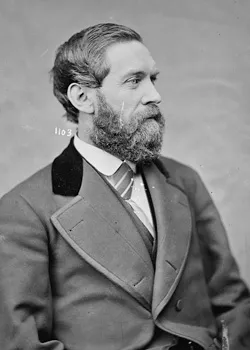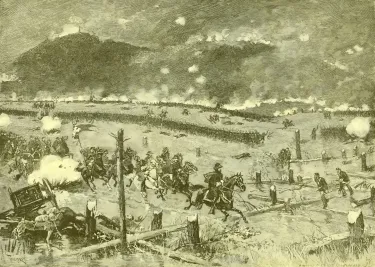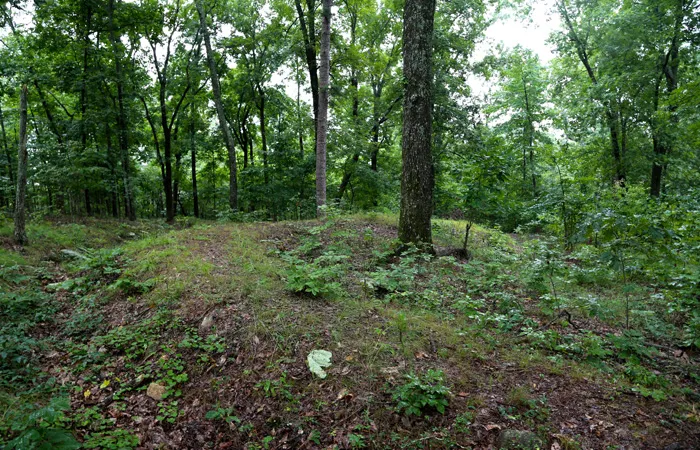Pigeon Hill


Stephen Davis
"Gentlemen this will be serious business and some of us must go down," Union Brig. Gen. Giles Smith announced to his officers early in the morning of June 27. Smith's was one of three brigades designated for the charge of Maj. Gen. John A. Logan's Fifteenth Corps. The others were Brig. Gen. Charles Walcutt's and Brig. Gen. Joseph Lightburn's. Walcutt went first, in two lines of battle. The Federals overwhelmed the Confederate skirmish line, taking 50 to 120 prisoners. "A dense undergrowth of oak and vines of all kinds," in the words of Capt. Charles Wills, broke up the Federals' formation before they got close to the Rebel works. Then they charged up the slope amidst punishing musketry, faltered, and after forty-five minutes fell back.
Smith's and Lightburn's brigades moved forward a little after 8:00 a.m. The Federals here too overran the Southern skirmish line. Lightburn's troops fought hand-to-hand with the 63rd Georgia, killing 40 and capturing another 40. Smith's men also forced back skirmishers in front of Brig. Gen. Francis M. Cockrell's lines. 41 of Cockrell's skirmishers were lost. The Federals then advanced up the hill. "There could be no concert of action and little leadership," noted a write in the 55th Illinois; "each had to climb or shelter himself and fight as he best could." Confederate musketry stopped the Northern attack. Cockrell's men rested their rifles on their dirt and rock earthworks and took steady aim. On Little Kennesaw General French also directed the fire of his artillery. Some of Smith's men got within fifteen or thirty yards of Cockrell's line but no farther. Seeing his attack fail, Gen. Smith ordered retreat and the bugle sounded. Some Federals clung to the slope, unable to fall back until darkness.

Lightburn's attack, to Smith's right against Walker's line, fell apart in the same way. When the Northerners crossed an open field south of Pigeon Hill, they came under harsh artillery fire. "We plunged the shells among them as fast as we could reload," recorded W.L. Truman of Guibor's Missouri Battery. "I saw their flag go down there three times, and as often picked up and kept in front, it was to me an awful sight to witness so many men killed and wounded."
Logan's attack was over an hour after it had begun. He eventually counted 586 killed or wounded and 17 missing. The Confederates lost perhaps 200 men, mainly the skirmishers taken prisoner in the initial Federal advance. Gen. Logan was left with the obvious conclusion that "it soon became evident that the works could not be approached by assault."

Your gift today helps save 77 acres at Ringgold Gap, Rocky Face Ridge, and Kennesaw Mountain — where history was made — with an incredible $22-to-$1...





